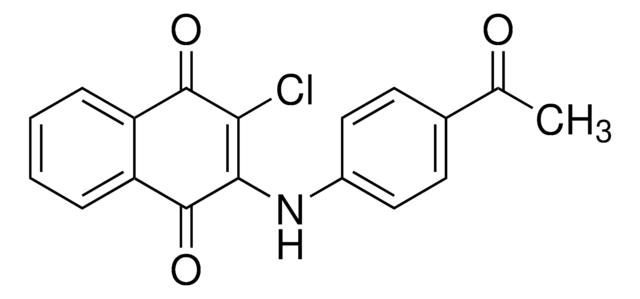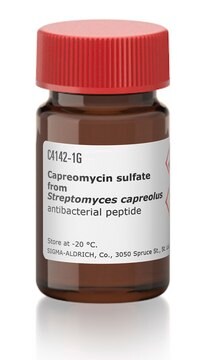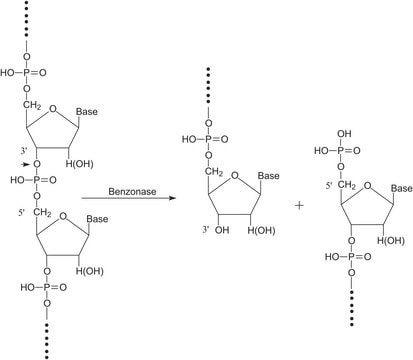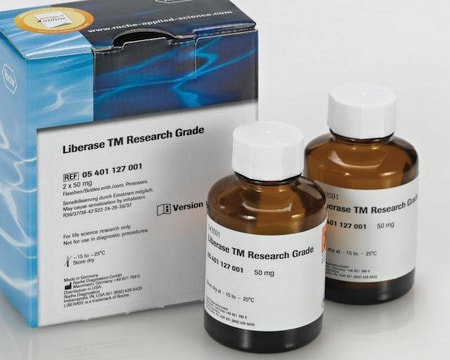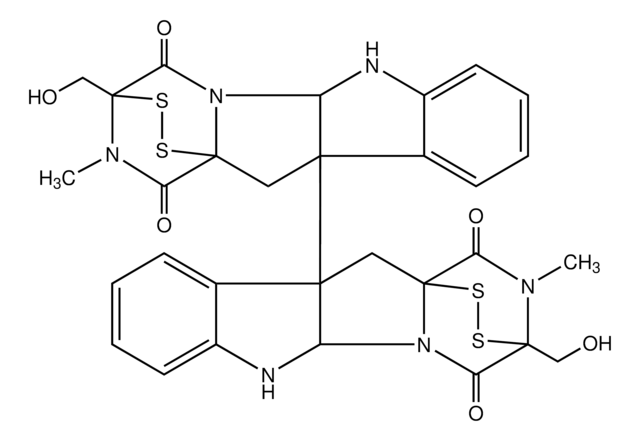R2033
RK-682
≥98% (HPLC)
Synonym(s):
(R)-3-Hexadecanoyl-5-hydroxymethyltetronic acid, (R)-4-Hydroxy-5-(hydroxymethyl)-3-(1-oxohexadecyl)-2(5H)-furanone
About This Item
Recommended Products
Assay
≥98% (HPLC)
form
powder
color
white to tan
solubility
DMSO, heptane and xylene: ≥8 mg/mL
storage temp.
−20°C
SMILES string
CCCCCCCCCCCCCCCC(=O)C1=C(O)[C@@H](CO)OC1=O
InChI
1S/C21H36O5/c1-2-3-4-5-6-7-8-9-10-11-12-13-14-15-17(23)19-20(24)18(16-22)26-21(19)25/h18,22,24H,2-16H2,1H3/t18-/m1/s1
InChI key
KZTSLHQKWLYYAC-GOSISDBHSA-N
Application
- as a positive control in high-performance liquid chromatography (HPLC)
- as a reference compound in high-performance liqiud chromatography (HPLC)
- as a pan-protein tyrosine phosphatase non-receptor type (PTPN) inhibitor to study its effects on the activated lymphocytes
Biochem/physiol Actions
Features and Benefits
Storage Class Code
11 - Combustible Solids
WGK
WGK 3
Flash Point(F)
Not applicable
Flash Point(C)
Not applicable
Choose from one of the most recent versions:
Certificates of Analysis (COA)
Don't see the Right Version?
If you require a particular version, you can look up a specific certificate by the Lot or Batch number.
Already Own This Product?
Find documentation for the products that you have recently purchased in the Document Library.
Articles
Protein tyrosine phosphatases (PTPs) and related enzymes (more than a hundred coded by the human genome) are more numerous than serine/threonine phosphatases. They belong to four families, three of which possess a conserved cysteine for catalysis and some conserved features of 3-dimensional structure. The catalytic mechanism of these PTPs involves the transient formation of a covalently phosphorylated enzyme.
Our team of scientists has experience in all areas of research including Life Science, Material Science, Chemical Synthesis, Chromatography, Analytical and many others.
Contact Technical Service